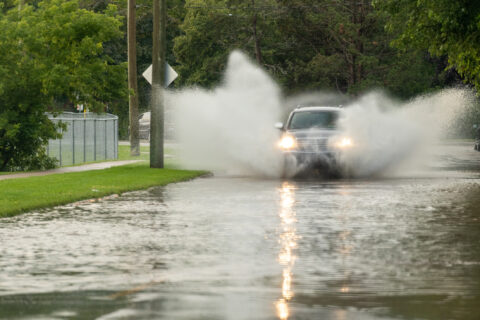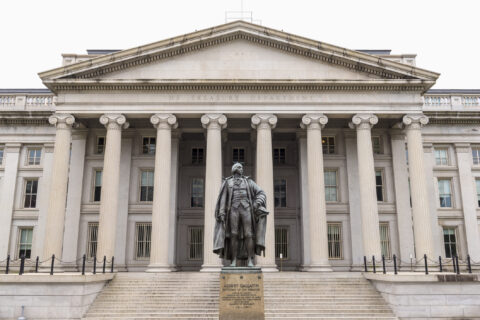The Local Infrastructure Hub is a national project that helps municipalities access federal infrastructure funding. The National League of Cities leads an initiative within the Hub that trains small to mid-sized cities on how to strengthen their federal grant writing skills through resources such as peer learning, small-group coaching, and expert office hours. While political landscapes are ever-changing, significant funding through the Bipartisan Infrastructure Law and Inflation Reduction Act remains.
These free trainings support cities through the entire grant process, from initial ideation and application drafting to developing and executing implementation plans. A recent visit to Dearborn, Michigan, highlighted the impact of this support, where NLC met with Mayor Abdullah Hammoud, a training participant and grant recipient. He shared his experience with the Local Infrastructure Hub’s Safe Streets and Roads for All (SS4A) grant writing program and discussed his vision for using these funds to transform his community.
Dearborn is Michigan’s seventh-largest city. With over 110,000 residents, Dearborn is known for its rich cultural diversity, as it is home to the largest concentration of Arab Americans in North America. The city boasts a vibrant small business corridor, primarily driven by entrepreneurial immigrants and refugees whose locally owned businesses have played a pivotal role in shaping Dearborn’s culture and community. Warren Avenue is one of the busiest corridors in the district, lined with numerous shops and restaurants. However, this street faces challenges with inadequate lighting and outdated infrastructure, which have negatively affected local businesses and residents. The aging infrastructure poses safety risks for motorists and pedestrians, with cars frequently veering off the road and crashing into storefronts.
After an initial unsuccessful attempt to secure funding, Dearborn participated in the Local Infrastructure Hub’s Safe Streets and Roads for All grant training. There, they harnessed the power of storytelling and revised their application to better illustrate the community’s needs and the potential impacts of the project. As a result, Dearborn secured $24.8 million in federal funding to reimagine traffic and pedestrian safety while enhancing walkability and access to local businesses.
“What really made the difference in going through Local Infrastructure Hub was understanding the types of data we needed to include on our application and how to use the data to tell a story.” — Mayor Abdullah Hammoud, Dearborn, MI
Dearborn is one of more than 1,000 cities that have benefited from the Local Infrastructure Hub’s free resources. Over 135 cities have already secured more than $435 million in grants, and with a new round of training sessions on the horizon, even more winners are poised to follow.
- Athens, Ohio: participated in the Charging and Fueling Infrastructure grant training and won $12.5 million.
- Bethlehem, Pennsylvania participated in the Safe Streets and Roads for All grant training and won $9.9 million.
- Boca Raton, Florida participated in the Safe Streets and Roads for All grant training program and won $4 million.
- Savannah, Georgia participated in the Reconnecting Communities and Neighborhoods grant training program and won $1.8 million.
- Gastonia, North Carolina participated in the Safe Streets and Roads for All Grant Program and won $400,000.
Cities nationwide can take similar steps. In late January, the Local Infrastructure Hub will offer a new set of trainings. These trainings will help cities navigate financial solutions to advance clean energy projects and secure funding for rail crossing safety initiatives and water infrastructure projects. What’s more, one of these new trainings will focus solely on the next steps once a city has secured funding, including proper grant management and implementation.
Check out this interactive map to learn more about hundreds of grant winners nationwide and the impact NLC and the Hub have had on residents’ lives. Please note: the interactive map is best viewed on a desktop device.
Register by January 22
The next round of free grant trainings begins January 27! Sign up through the Local Infrastructure Hub.










